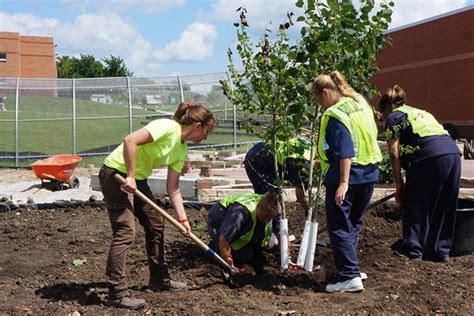Landscape architecture is a rewarding and challenging profession that requires a diverse range of skills. From technical expertise to artistic vision, landscape architects must possess a unique blend of knowledge and abilities to succeed. In this comprehensive article, we explore the critical skills that every aspiring or practicing landscape architect must master to achieve excellence in the field.

Technical Expertise
1. Design and Drafting Skills
Landscape architects use computer-aided design (CAD) software to create detailed plans and renderings of their projects. Strong proficiency in AutoCAD, Revit, or SketchUp is essential for visualizing and communicating design concepts effectively.
2. Site Analysis and Planning Skills
Understanding the physical and environmental characteristics of a site is crucial for successful landscape design. Landscape architects must analyze factors such as topography, soil conditions, hydrology, and sun exposure.
3. Plant Knowledge and Selection
Landscape architects must possess a deep understanding of plant species, their growth habits, and their suitability for different environments. They select and arrange plants to create aesthetically pleasing and functional landscapes.
4. Construction Techniques and Materials
Landscape architects oversee the construction and maintenance of their designs. They need a working knowledge of construction techniques, materials, and costs.
Artistic Vision
1. Creative Problem Solving
Landscape architects encounter complex challenges that require creative solutions. They must be able to generate innovative ideas that balance aesthetic appeal with functional requirements.
2. Design Aesthetics
Landscape architects create spaces that are both visually appealing and functional. They have a strong understanding of composition, color theory, and the principles of design.
3. Sustainability
Landscape architects prioritize sustainability in their designs. They incorporate elements such as rainwater harvesting, native plants, and permeable surfaces to minimize environmental impact.
Communication and Teamwork
1. Communication Skills
Landscape architects communicate with clients, contractors, engineers, and other professionals. They must be able to effectively convey their design concepts, technical specifications, and project timelines.
2. Presentation Skills
Presenting project proposals and design concepts to clients and stakeholders is an integral part of landscape architecture. Landscape architects must be confident and persuasive in their presentations.
3. Teamwork
Landscape architects often work in collaborative teams that include other professionals such as architects, engineers, and contractors. They must be able to effectively contribute to and lead teams.
Personal Qualities
1. Passion for the Environment
Landscape architects are passionate about creating beautiful and sustainable outdoor spaces. They have a desire to improve the environment and enhance people’s quality of life through their designs.
2. Detail-Oriented
Landscape architecture requires attention to detail in both the design and construction phases. Landscape architects must be meticulous in their work to ensure that their designs are implemented accurately.
3. Problem-Solving Skills
Landscape architects encounter unforeseen challenges during the design and construction process. They must be adept at problem-solving and finding creative solutions.
Additional Skills and Attributes
In addition to the core skills discussed above, landscape architects may benefit from developing the following additional skills and attributes:
- Photography
- Public Speaking
- Project Management
- Environmental Impact Assessment
- Leadership
Benefits of Acquiring These Skills
1. Career Opportunities
Landscape architects with a strong skillset have a wide range of career opportunities. They can work in private firms, government agencies, non-profit organizations, and landscape design studios.
2. Job Satisfaction
Landscape architecture is a rewarding profession that allows individuals to combine their love of the outdoors with their artistic and technical abilities.
3. Professional Growth
Continued professional development is essential for landscape architects to stay up-to-date with industry trends and advancements. Acquiring new skills and knowledge can enhance their expertise and lead to career advancement.
How to Acquire These Skills
Landscape architects can acquire the necessary skills through a combination of education, experience, and professional development.
1. Education
Undergraduate and graduate programs in landscape architecture provide a comprehensive foundation in the field. These programs typically include coursework in design, plant science, construction, and environmental planning.
2. Experience
Practical experience is vital for developing proficiency in landscape architecture. Internships, volunteer work, and hands-on projects provide valuable opportunities to apply classroom knowledge and gain real-world skills.
3. Professional Development
Attending workshops, conferences, and online courses allows landscape architects to stay up-to-date with industry trends and advancements. They can also pursue professional certification programs to enhance their credentials.
Frequently Asked Questions (FAQs)
1. What is the average salary for a landscape architect?
According to the U.S. Bureau of Labor Statistics, the median annual salary for landscape architects was $70,310 in May 2022.
2. What are the job prospects for landscape architects?
The job outlook for landscape architects is projected to grow 6% from 2021 to 2031, faster than the average for all occupations.
3. What is the difference between a landscape architect and a landscape designer?
Landscape architects have a more comprehensive education and training than landscape designers. They are licensed to practice in most states and are required to adhere to professional standards and ethics.
4. What are the most important personal qualities for a landscape architect?
Passion for the environment, attention to detail, and problem-solving skills are essential personal qualities for landscape architects.
5. What are the top emerging trends in landscape architecture?
Sustainability, biophilic design, and the use of technology are among the top emerging trends in landscape architecture.
6. What are the common challenges facing landscape architects?
Budget constraints, climate change, and the need for interdisciplinary collaboration are common challenges facing landscape architects.
Conclusion
Landscape architecture is a dynamic and rewarding profession that requires a diverse range of skills. By mastering the technical expertise, artistic vision, communication abilities, and personal qualities discussed in this article, landscape architects can unlock their full potential and create beautiful and sustainable outdoor spaces that enhance the human experience.
